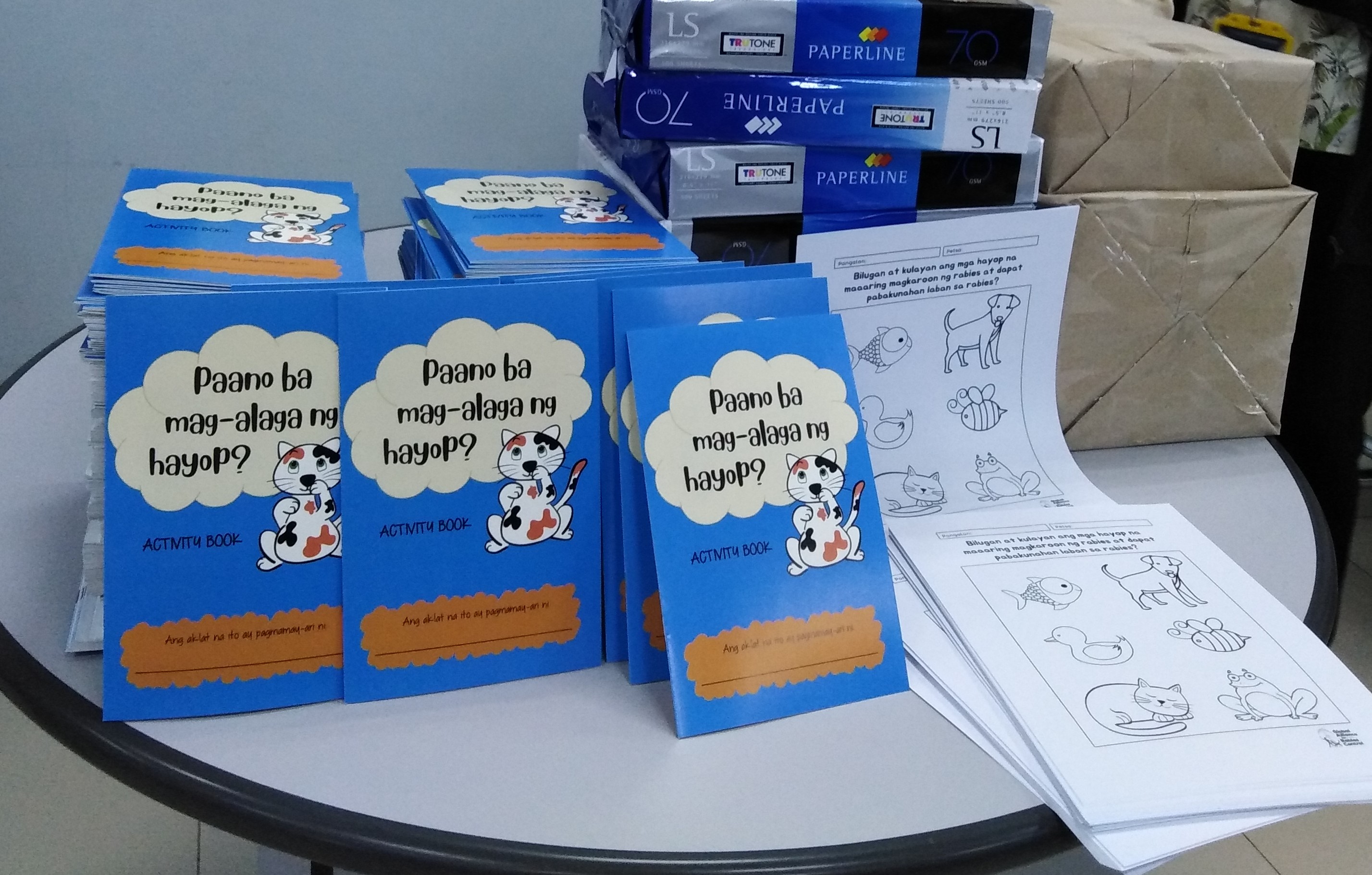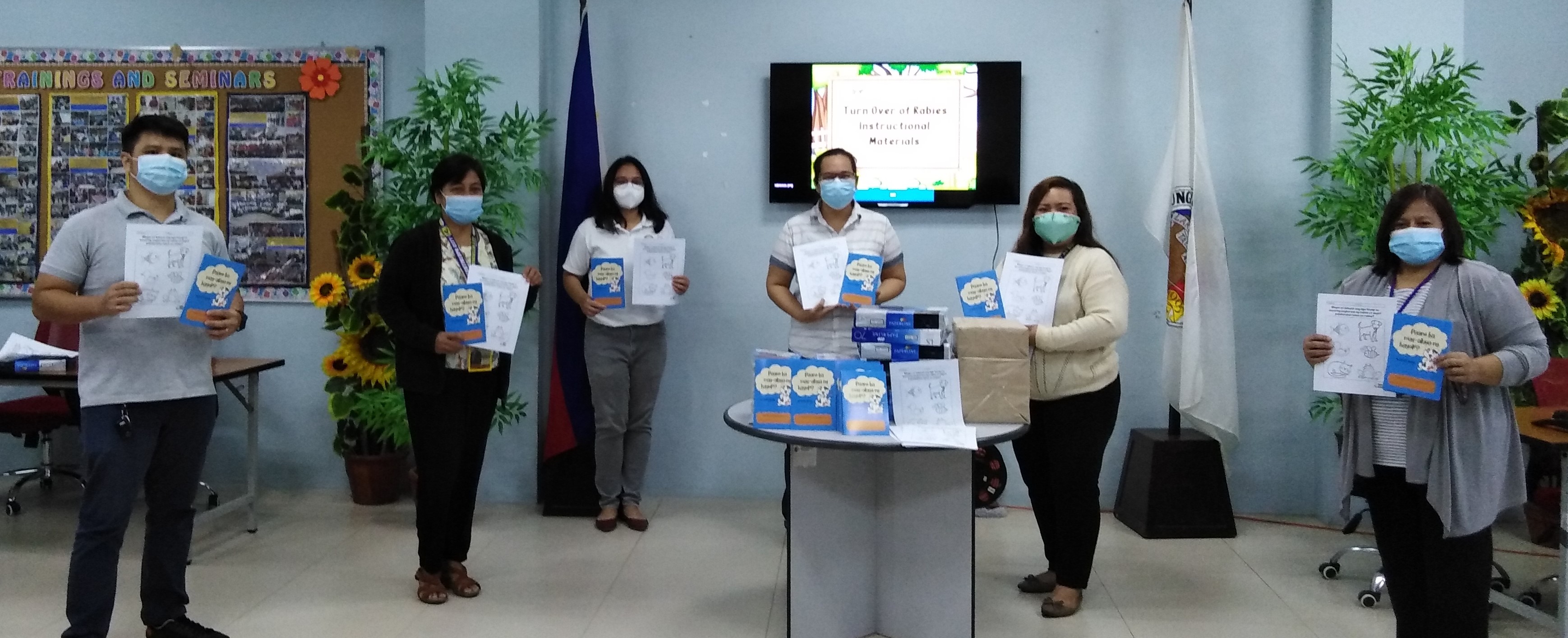Rabies Education Materials take One Health rabies elimination activities beyond human and animal health.
It is widely understood that rabies elimination requires the One Health approach, with concerted efforts from different stakeholders, including the human and animal health sectors. However, many other sectors play a critical role in rabies elimination activities, including the education sector. Considering the need for improved and sustainable rabies elimination awareness and education in the population, coupled with the fact that children are a high-risk group for rabies and animal bites, it should be evident that education initiatives target children. Considering this, education materials were developed specifically to educate young and vulnerable children about rabies and animal bite prevention as part of the larger Community Based Rabies Surveillance (CBRS) Project in the Philippines.
In February 2021, rabies education materials for day care students were given to the Early Childhood Education and Development (ECED) Division of Muntinlupa City. These materials included activity books and sheets to make learning about rabies prevention fun and enjoyable. The book entitled Paano ba mag-alaga ng hayop? (How should we take care of our pets?) includes age-appropriate activities to teach children about responsible pet ownership and highlights the importance of not disturbing pets to avoid being bitten or scratched. In addition, a supplemental activity sheet for the animated video Kakabakaba sa Bakuna [Filipino version] (I’m scared of vaccination [English version]) was developed and shared, along with a teaching guide with rabies facts that was provided to teachers and parents to learn more about rabies. The animated video tackles the importance of having the children’s pet cats and dogs regularly vaccinated against rabies and is available on GARC’s YouTube channel.
Rabies is one of the topics included in the curriculum program of ECED for the three levels of day care education as well as in the Family Support Module for the parents. The ECED already started distributing the materials to their students in March 2021, in time for the rabies prevention topic within their school curriculum. Incidentally, March is also the National Rabies Awareness Month in the Philippines. Although the pandemic has forced the shift to remote learning for students at home, modules and activity materials like these enable students to continue studying with the support and guidance of their teachers and parents.
We at GARC believe that teaching children at a young age can lead to a new generation of responsible pet owners and a rabies free community.
You can contribute towards rabies elimination with Sustainable Development Goal 4 (Quality Education) by using our free resources like our curriculum materials and our free online certificate courses.
Article contributed by Eunice Mendoza (GARC, Philippines)

